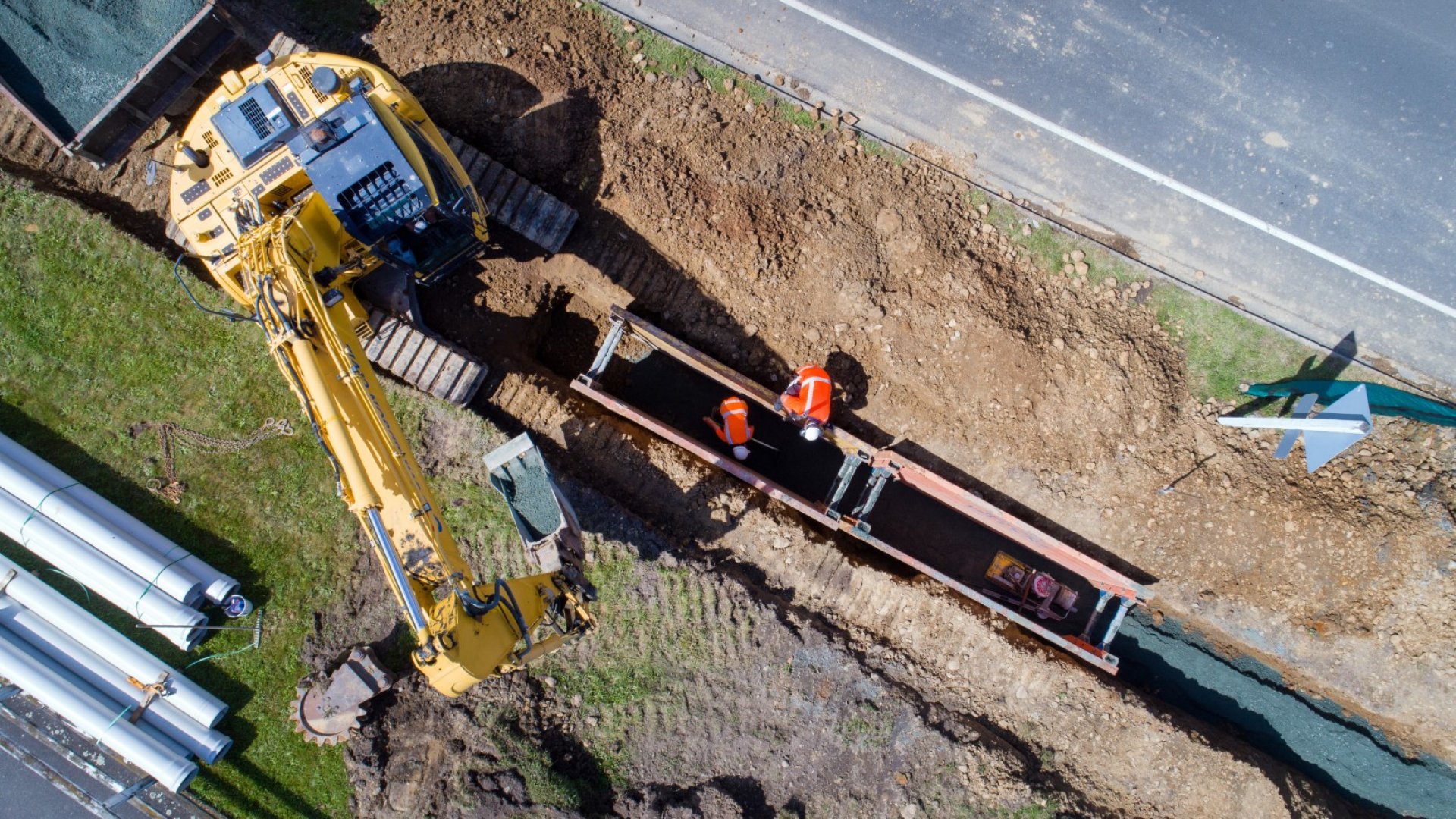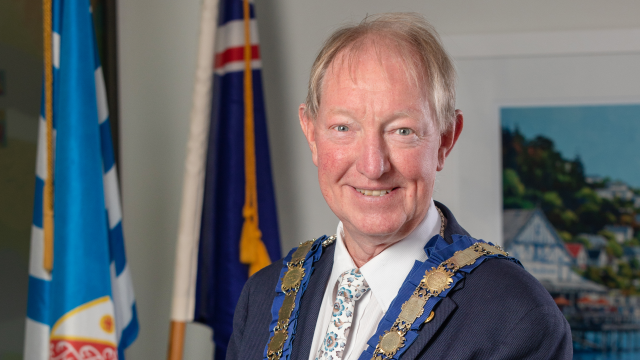Three Waters: The Factsheet
07/10/2021 3:38am
If you are trying to make an informed decision about Three Waters reform you may have seen there is a lot of misinformation to wade through. Nelson City Council has produced a factsheet that covers some of the most common misconceptions we have seen, and links to external information that can be trusted.
Why is Council not recommending a public referendum at this time?
At the meeting on 23 September, Council considered a proposal to hold a referendum prior to making a final decision about whether to take part in Three Waters reform. However, elected members received clear, independent advice that there is limited merit in Council holding a referendum that could lead the Nelson community to believe they could make a Yes/No decision, when the Government has the final say on whether the reforms go ahead. To hold a referendum could also be seen as wasted expenditure of ratepayer’s money.
In addition, until the final form of the proposal is known, it would be premature to initiate a referendum as the community does not currently have the information required to consider an informed decision.
The advice stated that public engagement and consultation would be a more appropriate way for the Government to understand and incorporate public opinion. Council has asked the Government to make improvements to the public information campaign, and to ensure there is adequate public consultation before any final decision is made.
Why hasn’t Council decided to ‘opt in’ or ‘opt out’?
We are not yet being asked to opt in or out. Councils around New Zealand have been asked to provide feedback to Government before Cabinet make their final decisions on the reform programme.
Council is legally obliged to seriously consider this reform, which means that deciding to ‘opt out’ or ‘opt in’ before there is a final proposal from the Government would be premature. This would be contrary to our obligations to make an informed decision. To reject the proposal now, would also mean losing our ability to influence the reform.
To be clear the Council has not opted in by default.
Why is the reform needed?
Changes to national quality standards for water, wastewater and stormwater, population growth and the effects of climate change will put more pressure on our three water networks.
This will mean the cost to upgrade, maintain and improve infrastructure is going to increase considerably. If the status quo remains, New Zealanders will see substantial increases to water bills over the next 30 years. For Nelson this will mean a projected increase of about $1,000 (in today’s dollars) per household if reform does not go ahead.
New Zealand will need to invest between $120 billion to $185 billion in its three waters infrastructure over the next 30 years to catch up with historical underinvestment, and to meet rising drinking water standards and rising environmental standards.
By combining 67 local authorities into four new water entities, the Government modelling shows that efficiencies of scale will allow more investment in water services delivery to occur without significantly increasing costs to ratepayers.
There is a common misconception that the Government is asking councils to consider and compare their current Three Waters operations and costs, with a future under the service delivery reforms.
This is incorrect, the past is not a good indicator of future costs. The status quo for water service providers is changing. To give an example, the Water Services Bill received Royal Assent on 4 October, which implements the Government’s decision to comprehensively reform the drinking water regulatory system. Changes like this will add significant obligations to councils and this comes at an increased cost.
Likewise, new environmental standards are being introduced to help better protect our environment. Three Waters systems that do not meet these standards will need to be upgraded, at significant cost.
How would the proposed cross-subsidisation between various council areas operate?
In our written response to the Government, we have queried this issue and await a response: “Accepting that there will be some net benefits, how do we ensure that places like Nelson that have invested in Three Waters infrastructure are not penalised because other councils have not invested at the same level?”
Are our water assets being sold off?
No. The assets remain in public ownership and aren’t being sold. The new entities would be collectively owned by councils, on behalf of communities. The Three Waters assets would be transferred off our balance sheets to the new entity.
Based on the current book values of our Three Waters assets and our Long Term Plan projections, an estimated $716 million of assets would transfer to the new entity on 1 July, 2024.
Will we be left with Three Waters debt on our balance sheet?
No. The debt that we have accumulated in building our Three Waters assets would also be transferred to the new entity.
Based on our Long Term Plan projections an estimated $81.5 million of debt would transfer to the new entity on 1 July, 2024.
We would also receive a one-off payment of $20.7 million to invest in the wellbeing of our community.
Are these entities going to be state-owned and controlled?
No. The proposed structure will see a Regional Representative Group made up of mana whenua and representatives from the councils involved. This Group will appoint an Independent Selection Panel that will in turn select the skill-based Board for each entity.
The Representative Group will set the strategic and performance expectations for the Board that will influence the Statement of Intent that the entity produces.
In Council’s feedback to the Government we raised concerns that this structure is too complicated, with councils too far removed from the entity.
What protections are there against privatisation?
Among other measures, these are some of the ways the Government plans to protect water assets from privatisation.
- The Councils that constitute each entity would be the owners of that entity.
- Any privatisation proposal would need a 75% majority vote of the Regional Representative Group appointed by Councils and mana whenua.
- It would then be put to referendum where a 75% majority would also be required.
This is another issue Council has raised in our feedback to the Government.
How do we know that the projects important to us as a community will be delivered?
Under the current proposal councils will be able to retain some influence on three waters assets and services on behalf of their communities through the Regional Representative Group. However, Council has asked the Government what guarantees can be given to ensure that planned and anticipated investment in the three waters infrastructure in Nelson would not be compromised or delayed. We have also asked for clarity around how direct engagement with local communities will occur.
What role do mana whenua and iwi play?
In the current proposal, Iwi/Māori will have a joint role with councils in the oversight and strategic direction of the proposed new water services entities through the Regional Representative Group but will not have ownership rights.
Mana whenua will not have a veto on Three Waters decisions.
How do we know that these entities will be cost effective?
There is independent, peer-reviewed evidence that money can be saved.
While there may be some debate about the amount of savings, the evidence definitely shows that there will be efficiency gains.
These entities will be in a better position to borrow sufficient capital to invest in Three Waters infrastructure. They will be well-placed to attract and retain the professional capability needed. Their market power would also mean they could negotiate better and more consistent procurement, and be better able to guarantee service in remote areas as part of that wider contract.
Scottish Water has achieved efficiencies, and there are plenty of other examples in the UK and the EU that show efficiency gains are possible.
In Tasmania and Victoria, their combined waters authorities have achieved significant cost efficiency gains.
These models of operating water services are well established, and there is no credible reason that suggests New Zealand will not achieve similar benefits.
An economic regulator will also be introduced. The purpose of an economic regulator is to ensure it is no longer possible to under invest, or charge consumers too much, or to deliver poor quality water services.
What would happen if we needed a substantial amount of money for urgent Three Waters work?
With or without reform, there will always be a need to respond to urgent work. This includes events such as natural disasters where large scale re-builds are required.
Given the scale of entities, it is anticipated that they will be in a better position than individual councils to address urgent needs.
What feedback have you given to central government?
Our letter to Local Government Minister Hon Nanaia Mahuta raises several issues that would need to be ironed out for the reform to be considered at a local level. These are issues that have been raised by our community, and shared by other councils in New Zealand as well.
They include:
- Making sure councils have a strong say through a simpler governance model
- Clarifying how councils will work alongside new entities so our community’s voice is heard
- Ensuring entities will deliver Three Waters services that are resilient to climate change and lift environmental standards, as well as being more cost effective. Providing strong protections against privatisation
- Delivering a clearer public information campaign, combined with community consultation
The full letter can be read here: https://shape.nelson.govt.nz/three-waters-reform
Where do I go for accurate information?
There is a significant amount of information available on the Department of Internal Affairs (DIA) website and LGNZ’s website.
https://www.lgnz.co.nz/reforms/three-waters/
https://www.dia.govt.nz/three-waters-reform-programme-frequently-asked-questions
https://threewaters.govt.nz/



